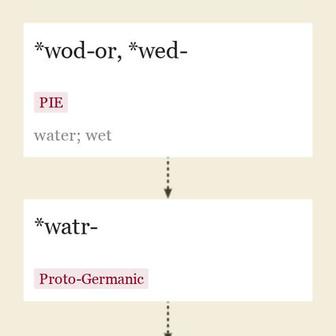Old English hamor "hammer," from Proto-Germanic *hamaraz (source also of Old Saxon hamur, Middle Dutch, Dutch hamer, Old High German hamar, German Hammer). The Old Norse cognate hamarr meant "stone, crag" (it's common in English place names), and suggests an original sense of the Germanic words as "tool with a stone head," which would describe the first hammers. The Germanic words thus could be from a PIE *ka-mer-, with reversal of initial sounds, from PIE *akmen "stone, sharp stone used as a tool" (source also of Old Church Slavonic kamy, Russian kameni "stone"), from root *ak- "be sharp, rise (out) to a point, pierce."
As a part of a firearm, 1580s; as a part of a piano, 1774; as a small bone of the ear, 1610s. Figurative use of "aggressive and destructive foe" is late 14c., from similar use of French martel, Latin malleus. To go at it hammer and tongs "with great violence and vigor" (1708) is an image from blacksmithing (the tongs hold the metal and the hammer beats it). Hammer and sickle as an emblem of Soviet communism attested from 1921, symbolizing industrial and agricultural labor.
late 14c., "deal blows with a hammer or axe;" mid-15c., "to produce (something) by blows with a hammer," from hammer (n.). Also sometimes in Middle English the verb to describe how Christ was crucified. Figurative meaning "work (something) out laboriously" recorded from 1580s. Meaning "beat or drive with or as if with a hammer" is from 1640s; that of "to defeat heavily" is from 1948. Old English had hamorian "to beat out, forge." Related: Hammered; hammering.
Crist, as he was ruthfully hamerd apon the croce, Songe to his fadire of heven.
["The Mirror of Man's Salvation," 15c.]
Old English wæter, from Proto-Germanic *watr- (source also of Old Saxon watar, Old Frisian wetir, Dutch water, Old High German wazzar, German Wasser, Old Norse vatn, Gothic wato "water"), from PIE *wod-or, suffixed form of root *wed- (1) "water; wet."
To keep (one's) head above water in the figurative sense is recorded from 1742. Water cooler is recorded from 1846; water polo from 1884; water torture from 1928. Linguists believe PIE had two root words for water: *ap- and *wed-. The first (preserved in Sanskrit apah as well as Punjab and julep) was "animate," referring to water as a living force; the latter referred to it as an inanimate substance. The same probably was true of fire (n.).
"the sea; naturally occurring salt water," late Old English sealtera watera. As an adjective from 1520s, "inhabiting salt water or the sea." Salt-water taffy attested by 1886; so called because it originally was sold at seashore resorts, especially Atlantic City, N.J. (see taffy).
measure of quality of a diamond, c. 1600, from water (n.1), perhaps as a translation of Arabic ma' "water," which also is used in the sense "luster, splendor."


